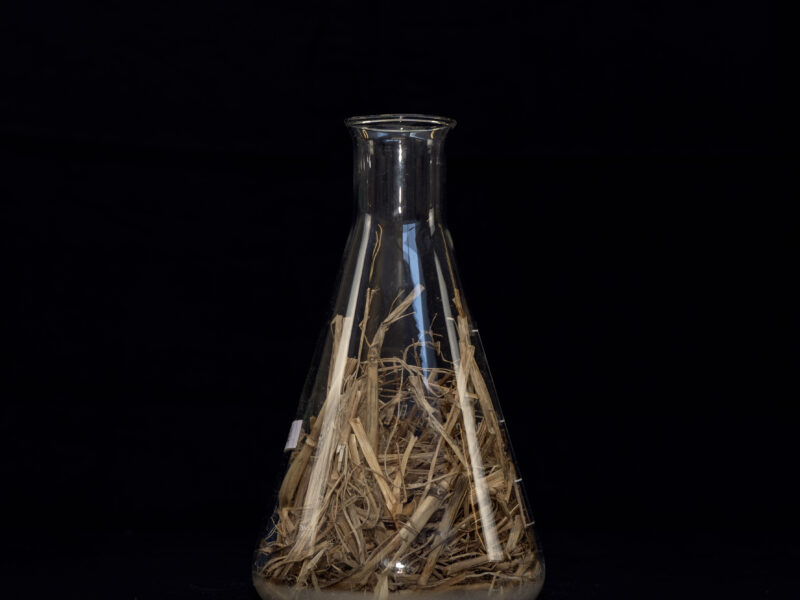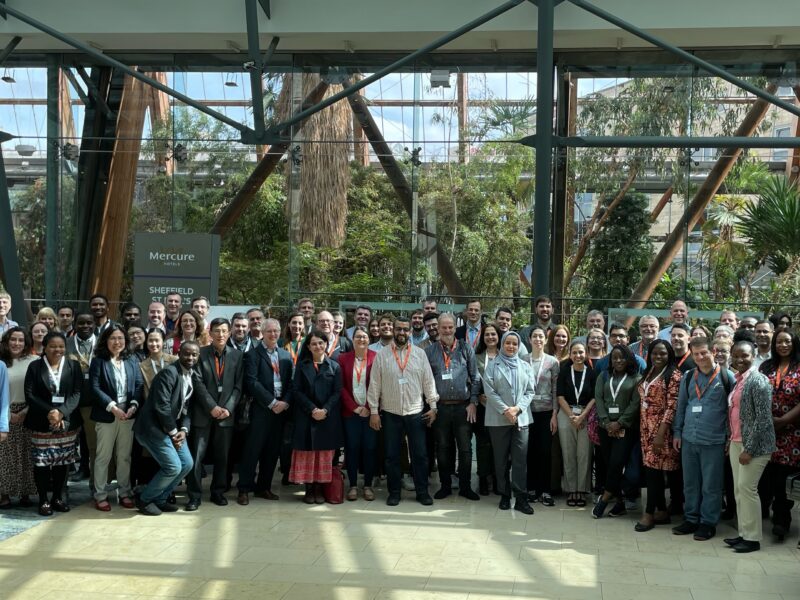Production of the first garment using textile waste derived microbial cellulose.
- Project lead
- Neil Bruce
- Institute
- University of York
Summary:
The textile industry has been condemned for its wasteful supply chains and polluting practices that are responsible for more than 4% of the global carbon emissions. Worldwide, over 100 million tonnes of fibres are consumed and discarded annually, 97% of these are from virgin resources and only 1% are recycled into new fibres at the end of life. Recently, legislations such as Extended Product Responsibility, which give the producers responsibility for the fate of the garments they manufacture, are forcing brand retailers to manage the fate of their products at the end of use. Recycling is seen as the solution but there is still no commercial textile-to-textile system available.
Mechanical recycling of cotton leads to fibres of lower length and quality and chemical recycling is often limited to specific textile types requiring the clothes to be sorted and decolored. We have developed an innovative approach to cellulosic textile recycling, which circumvents many of the disadvantages. Cotton and viscose are made of cellulose, a polymer of the sugar molecule, glucose. In our approach, the cellulosic fibres are digested into glucose using cellulolytic enzyme cocktails. The resulting glucose is then fermented by the bacterium Novacetimonas hansenii to produce new pure cellulose. This process has many advantages. The new cellulose is free of dyes with no need for colour removal; the process also works well with fibre blends, allowing the cellulose to be digested from polyester cotton blends (polycotton). The concept has been demonstrated and is being scaled up through a BBSRC NIBB BBNet Scale-up award. As part of the scale-up activities, York aims at testing its cellulose for fibre application thanks to trials with industry experts and has engaged with the Australian company Nanollose because of their expertise in spinning bacterial cellulose into fibres.Nanollose Ltd is a biotechnology company with patented technologies relating to the production, processing and applications of microbial cellulose from coconut juice wastes. They have developed a business venture with Birla, one of the largest world producers of viscose and lyocell to manufacture Nanollose fibres, Nullarbor TM at a scale allowing for the production of a garment. Using sugar rich feedstock allows Nanollose to market Nullarbor TM as a tree-free yarn. Due to the demand in recycled fibres, Nanollose is interested in demonstrating the feasibility of producing yarn from textile wastes instead of sugary feedstock. Nanollose has, therefore, offered us the opportunity to generate yarn and manufacture a garment with our bacterial cellulose.
In this project, York and Nanollose will share their expertise. York will produce 2kg of bacterial cellulose from textile and Nanollose will convert the cellulose into fibres, yarn and fabric for the production of a garment. This garment will be the first garment produced from bacterial cellulose derived from waste textile. The potential impacts of this work are significant, it will demonstrate to retailers that the process developed at the University of York can be used to make textile and would open market opportunities for Nanollose.
This project is ongoing and an update on the outcomes and impact will be published on completion.
Academic partner: Neil Bruce, University of York, Alexandra Lanot, University of York
Industrial partner: Wayne Best, Nanollose







